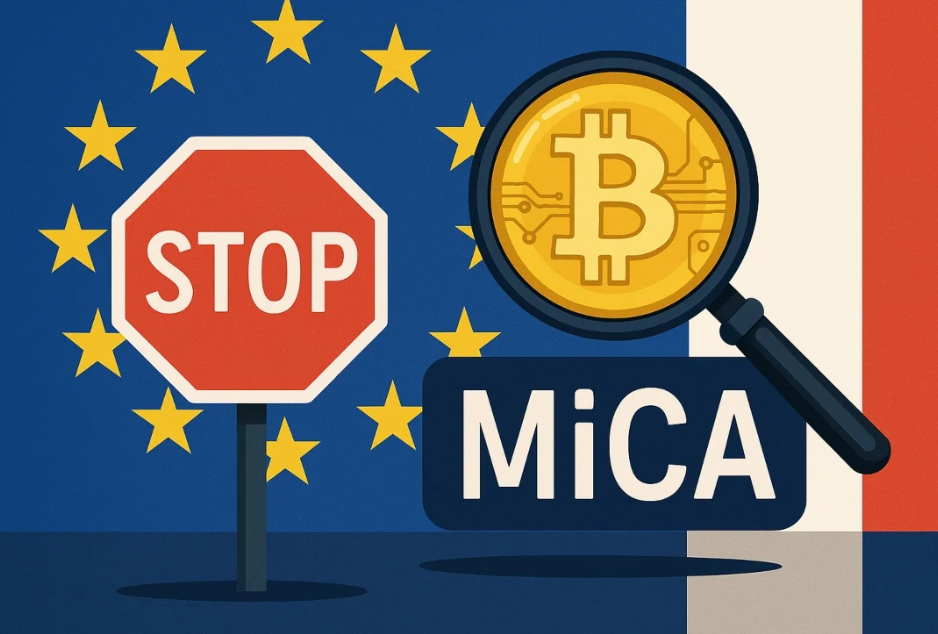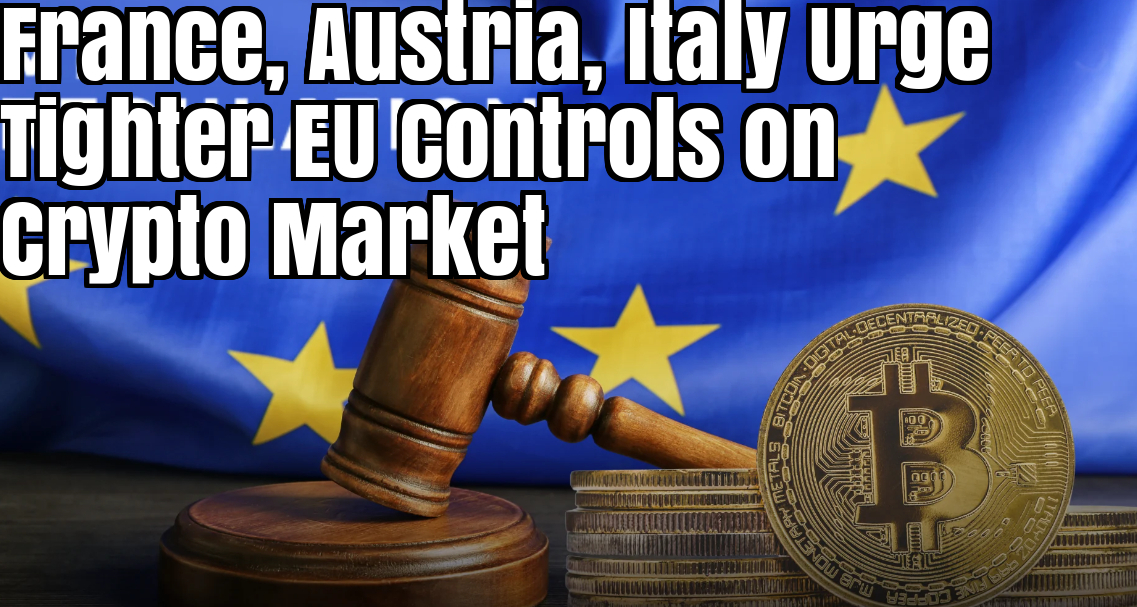France, Austria, Italy Urge Tighter EU Controls on Crypto Market
The cryptocurrency market is growing quickly, and regulators are becoming more cautious. Recently, financial authorities from France, Austria, and Italy released a joint statement urging the European Union to strengthen its oversight of crypto regulations.
They explained that even though laws like MiCA are in place, investors still face risks because the rules are not applied the same way across all EU countries. To make it easier to understand, imagine a building where every room has a different level of security. If one room is weak, the entire building is at risk. In the same way, if some countries apply MiCA less strictly, companies may move there to take advantage of weaker laws, leaving investors less protected.
Also Read: Stablecoin Uncertainty Increases as Banks Disband and Regulators Face Pressure
Key Points
- France, Austria, and Italy push for stricter crypto rules in the EU. Regulators from these countries are urging the European Union to tighten its oversight of the crypto market.
- Direct supervision by ESMA. They want the largest crypto service providers to come under the direct supervision of the European Securities and Markets Authority (ESMA) so that rules remain consistent across all EU member states.
- Action against offshore platforms. Authorities are also seeking stricter measures against offshore crypto companies that target EU users but fall outside the MiCA (Markets in Crypto-Assets) framework.
- Focus on investor protection and security. The proposals aim to strengthen investor confidence, improve cybersecurity, and create a safer environment for crypto trading in Europe.
In response, regulators from France (AMF), Austria (FMA), and Italy (Consob) have outlined four key proposals aimed at strengthening oversight and shaping the future of the cryptocurrency market.

1. The Role of ESMA in Supervising the Crypto Industry
Regulators in Europe are calling for the European Securities and Markets Authority (ESMA) to take direct control over the supervision of major crypto companies. The goal is to make sure that consistent laws and standards apply across the entire EU. At present, each country has its own regulator, which often creates differences in how the rules are enforced. This lack of uniformity can make it difficult for investors and businesses to operate with confidence.
Australians Can Now Use Bitcoin to Secure Home Loans, Ushering in a New Age in Finance
Anyone with trading experience may recognize this challenge. For example, licensing and rules for services such as CFD brokers can vary greatly from one country to another. In stricter environments, investor protection is stronger, while in weaker ones, substandard companies may find room to grow. I experienced this myself when I started trading in international markets and saw how different regulatory systems worked. This is why stronger, centralized oversight by ESMA is considered vital for transparency, security, and building long-term trust in the crypto market.
2. Restrictions on Offshore Platforms
One of the big problems in the EU is that some brokers and middlemen send customer orders to offshore platforms that are not covered by MiCA rules. As a result, investors miss out on the legal protections and safety standards they would normally get under EU regulations.
Think of it like this: you go to a licensed, reliable shop to make a purchase, but the shopkeeper asks you to step outside and pay in a risky, unknown street. This kind of setup increases the chances of fraud. Regulators now want to close this loophole so that investors stay protected and confident in the market.
3. Stronger Cyber-security Compliance Audits
The crypto sector is constantly exposed to risks such as cyberattacks and hacks. To address this, regulators have suggested that every company should go through a mandatory and independent cybersecurity audit before receiving a MiCA license, or whenever it is renewed. This step would not only help keep investors’ funds safe but also build greater trust and confidence in the overall market.
4. EU-Wide White Paper Submission Platform
The last proposal focuses on creating a central filing system for token white papers. With this system, cross-border offerings would become easier, and crypto regulations could be applied more consistently across EU countries. It would also provide greater legal clarity and transparency while making it simpler for new projects to launch and operate across the entire EU.

Stronger Regulations Could Boost Trust and Growth in Crypto Markets
Regulators in the EU are pushing for stricter and more uniform crypto laws, which could become a model for other countries. These steps aim to strengthen investor protection, reduce risks, and encourage institutional investors to enter the market with greater confidence.
Clear regulations have always boosted trust in financial markets, as seen with stocks and bonds. The same effect is expected in crypto, where stronger rules will support long-term growth, stability, and maturity—while also making the market more attractive to new investors.
Crypto Brief: Washington Gridlock Edition
Safer Future for Crypto Investors
France, Austria, and Italy’s push for unified EU crypto rules reflects a growing awareness of risks in the market. By focusing on investor safety, transparency, and responsibility, these regulations can turn crypto into a more reliable financial system for the future.






